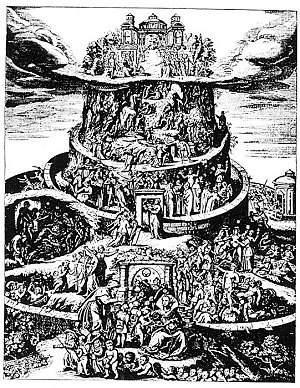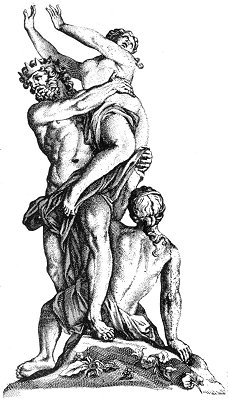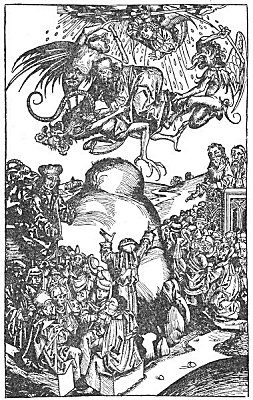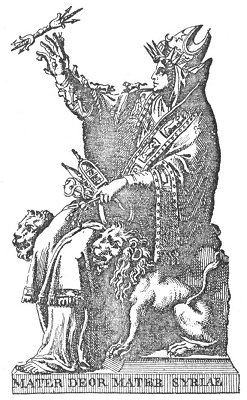p. 492
long abused, thirsts after the grand ultimatum. By this means they weaken the enemy; and though they should never triumph over him, they will at least diminish the numbers and the zeal of his partizans; they divide his troops to cover the attack. In proportion as these new associations or secret societies, formed in different states, shall acquire strength and prudence at the expence of the former ones (that is to say, of civil society), the latter must weaken, and insensibly fall.”
“Beside, our Society originates, and must naturally and essentially deduce its origin from those very governments whose vices have rendered our union necessary. We have no object but that better order of things for which we incessantly labour; all the efforts, therefore, of Princes to stop our progress will be fruitless; the spark may long remain hidden in the ashes, but the day must come in which shall burst forth the general flame. For nature nauseates always to run the same course. The heavier the yoke of oppression weighs on man, the more sedulously will he labour to throw it off; and the liberty he seeks shall expand itself. The seed is sown whence shall spring a new world; the roots extend themselves; they have acquired too much strength, they have been too industriously propagated, for the day of harvest to fail us.—Perhaps it may be necessary to wait thousands and thousands of years; but sooner or later nature shall consummate its grand work, and she shall restore that dignity to man for which he was destined from the beginning.”
Reader, you have heard them. These conspirators have said more than I should have dared to hint at on the nature and danger of these associations. It would be useless for me to rest longer on that point. I shall end by showing by what artifices the Hierophant endeavours to tranquilize the consciences of those adepts who may have been startled at these predictions. Notwithstanding all that he has said of those times when Illuminism shall find means of binding hands and subjugating; notwithstanding all that aversion against governments which he seeks to infuse into the adepts, he concludes in a hypocritical strain peculiar to his wickedness. “We are here at once the observers and the instruments of nature.—We do not wish to precipitate her steps. To enlighten men, to correct their morals, to inspire them with benevolence, such are our means. Secure of success, we abstain from violent commotions. To have foreseen the happiness of posterity, and to have prepared it by irreproachable means, suffices for our felicity. The tranquility of our consciences is not troubled by the reproach of aiming at the ruin or overthrow of states and thrones. Such an accusation could with no more propriety be preferred against us, than it might against the statesmen who had foreseen and foretold the impending and inevitable ruin of the state.—As assiduous observers of Nature, we admire her majestic course; and, burning with the noble pride of our origin, we felicitate ourselves on being the children of men and of God.”
“But carefully observe and remember, that we do not impose our opinions; we do not oblige you to adopt our doctrines. Let the truth you can acknowledge be your only guide. Free man, exercise here thy primitive right; seek, doubt, examine; do you know of, or can you find elsewhere, any thing
p. 493
that is better?—Make us acquainted with your views, as we have exposed ours to you. We do not blush at the limits of our understandings; we know that we are but men; we know that such are the dispositions of nature, such the lot of man, that he is not to expect to attain perfection at his outset; he can attain it but by degrees. It is by gaining experience from our errors, by profiting of the lights acquired by our forefathers, that we shall become at once the children of wisdom, and the parents of a still wiser progeny. If, therefore, you think that you have found truth in the whole of our doctrine, adopt the whole. Should you perceive any error to have stolen in with it, remember that truth is not the less estimable on that account. If you have met with nothing that pleases you here, reject the whole without fear; and remember, that in many things, at least, we only need further research, or a new investigation. Do you observe any thing blameable or laudable, see and make choice of what you approve. Should you be more enlightened yourself, then your eye may have discovered truths which are still denied to us. The more art we employ in the instruction of our pupils to lead them to the paths of wisdom, the less you will be inclined to refuse us a portion of your applause.”

Moe is the founder of GnosticWarrior.com. He is a father, husband, author, martial arts black belt, and an expert in Gnosticism, the occult, and esotericism.





